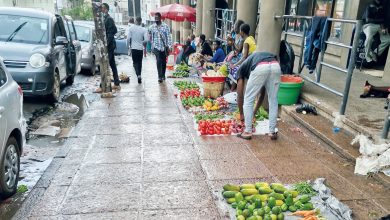Tea output drops in Q2, but earnings rise—RBM
Malawi’s tea output took a hit in the second quarter, plummeting by 25 percent to 13.4 million kilogrammes (kg).
But despite this decline, earnings saw a notable uptick, climbing to $1.8 million (about K3.1 billion) from $1.6 million (About K2.8 billion), driven by higher sales volumes compared to the same period last year, according to the latest data from the Reserve Bank of Malawi (RBM).
Data contained in the Reserve Bank of Malawi (RBM) Financial and Economic Review for Second Quarter show that tea output declined between April and June to 13.4 million kg from 18.2 million kg in first quarter and 12.6 million kg in the corresponding quarter in 2024.

There were notable increases in tea sales, denoting mixed fortunes of the sector, which remains the country’s second major foreign exchange earner after tobacco.
Reads the report in part: “However, tea sales increased to 1.6 million kg in the quarter under review, from 1.4 million kg sold in the previous quarter.
“Meanwhile, tea prices dropped to $1.1 [about K1 926] per kg from $1.2 [about K2 101] per kg in the preceding quarter.”
Speaking in an interview on Monday, Tea Association of Malawi chief executive officer Tonda Chinangwa described the drop as seasonal largely because second quarters are associated with dry weather, thereby reducing tea output.
He said: “This is the normal annual tea production trend in Malawi. Production is typically higher in the first quarter then drops during the second and third quarters, before picking up again in the fourth quarter. This pattern is mainly driven by rainfall distribution.”
In a separate interview on Tuesday, Trust Africa programme officer Beatrice Makwenda, whose firm is a key tea industry stakeholder that advocates for better collaboration between workers and companies, said they have engaged in a number of initiative to boost tea output to strengthen smallholder institutions.
“The tea sector is decisively working towards improving both production and productivity by strengthening smallholder institutions and creating a conducive environment for social dialogue,” she said.
Makwenda said the changes in industry practice coupled with research programmes targeting modern varieties and technologies, will result in ethical tea production, which will sustain current markets and open new opportunities.
Tea Association chairperson Sangwani Hara is quoted as having told a tea testing event in London, United Kingdom last year that enhanced trade can provide a good alternative to aid and development assistance through increased exports of products like tea.
Tea is one of Malawi’s foreign exchange earners, contributing about eight percent to foreign exchange earnings and 11 percent to national employment.
The tea industry employs about 60 000 temporary and permanent workers.




